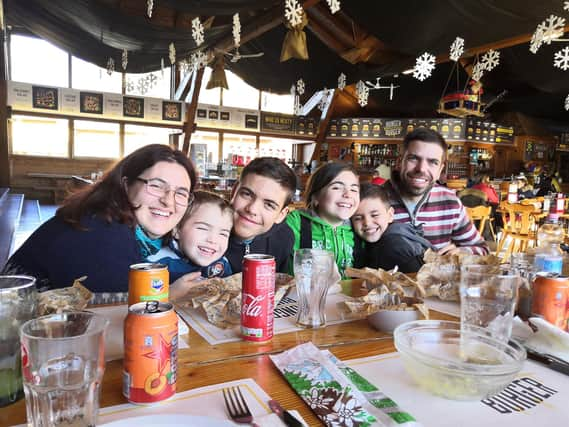Life under lockdown in Northern Italy: a teacher's story


The town has been placed under restrictions as part of measures to stop the spread of Coronavirus. Here he tells his story of life under lockdown.
Here in Italy the days are rather strange. Especially in Veneto, where I live.
Advertisement
Hide AdAdvertisement
Hide AdRovigo, my town, is involved only by association in the emergency: so far, we have only had five cases of coronavirus, but Vo’ Euganeo, one of the outbreak towns, is about 50 km from here, therefore very close to us.
Schools in the northern regions have been closed since 24 February. At the beginning we thought it would not last long, a week at most, just to contain the infection. Then the government extended and tightened the first measures, extending the closure of the schools to all of Italy.
For now, they are officially closed until 15 March, but we expect the government to extend the closure until the end of the month and perhaps also to the end of April. There is also the possibility that they will not reopen for the rest of the school year: for now it is a remote possibility, but the Ministry is already looking at how high school exams scheduled for the end of June could be taken if we are still restricted.
My children have already been at home for several days, but I am at home too, because I am a teacher. The government has asked teachers to take lessons remotely, through the internet, but it is not easy.
We have many older teachers, who are not used to using internet for these purposes - they don’t know how to record videos and they have never used e-learning platforms - also, not all our pupils have a good internet connection at home. Some have cell phones only and don’t own a computer.
For now, my children’s teachers have set homework and exercises for them to do, but in the long run you can not go on with this system.For my high school students, I prepare video lessons and I talk remotely with them through some groups that we have created on special web applications. In general there are sometimes problems with connections and congestion of the line, so it is a bit difficult.
Above all, we don’t know what to expect. Initially the schools were closed for a week, then it became two, then three, and each time the announcement of the extension arrived on Saturday or even Sunday - for Monday. Families are struggling to find babysitters for their children.
Even after-school services have had to close and parents cannot always work from home because not all companies are ready for smart working.
Advertisement
Hide AdAdvertisement
Hide AdThe government is asking everyone, especially in the north, to leave home as little as possible and not travel, to minimise the possibility of contagion, but so far these orders have been enforced only in the “red areas”, while elsewhere it was just advice. The impression is that in the next few days this “advice” will become orders and we will have to try to limit social activities to a minimum. Already, many restaurants are in crisis and forced to close, as well as travel agencies, hotels and so on.
The children are not really worried. Until Saturday the gyms and the swimming pools were open and they went regularly to play sports, even if with some caution - washing their hands often, staying at a certain distance from other people - etc. They also met with one or two friends. From last weekend, however, gyms have closed and the opportunities for recreation outside the home will be reduced.
The situation is getting heavy in these hours. Until a few days ago people still went on vacation or to the mall, because there were very few cases near us. Now there is fear that the wave will come: only yesterday in Italy there was over 1,000 more cases of contagion.
We understand that we must be very careful because hospitals are already full, but at the same time the lockdown is bringing our economy to its knees, especially in some sectors. And the impression is that we still have several weeks to go.
The problem, above all, is that hospitals cannot manage all the sick. Lombardia, which is theoretically the most efficient region, is already close to collapse. So the thing that worries us most is the tightness of the system at the moment: there is a risk that doctors will get sick, and therefore we will not find them on duty even for trivial things, for example if you cut yourself and you need stitches.
In supermarkets, there was an assault in the first days the schools were closed. But then the situation normalised. You try to go shopping only when necessary, but the shelves are full and people go to supermarkets. Sometimes you see someone with a mask and gloves, but in truth the majority, at least here in Rovigo, go around the supermarkets and the streets without them.
At the beginning, the economic impact of the shutdown was the most worrying thing, so people tried not to panic and keep going out, spending, going to the restaurants and to the theatres. The politicians themselves, initially, said it was just a trivial thing. Now things are changing, because they have realised that coronavirus is spreading very quickly and we are not equipped to treat tens of thousands of people all seriously ill at the same time.